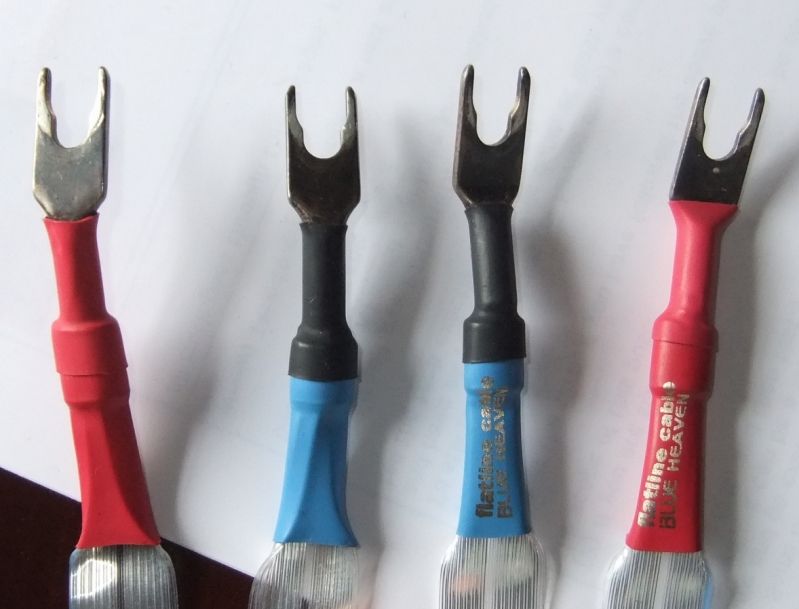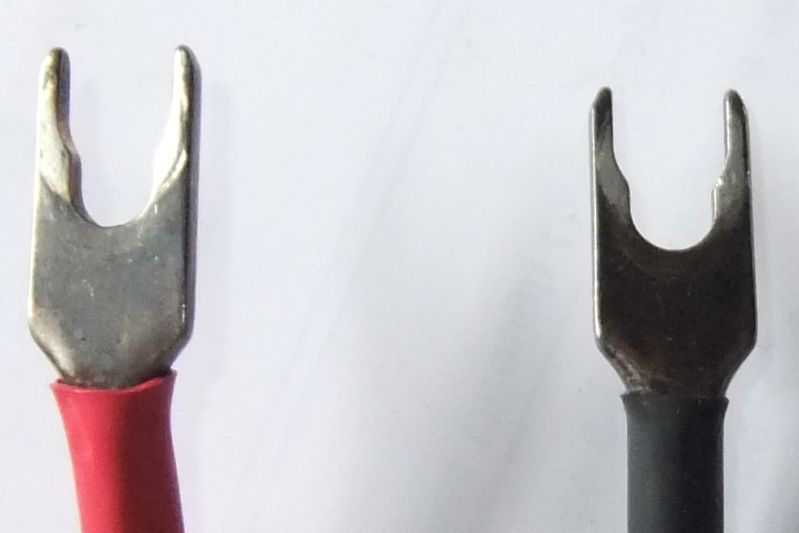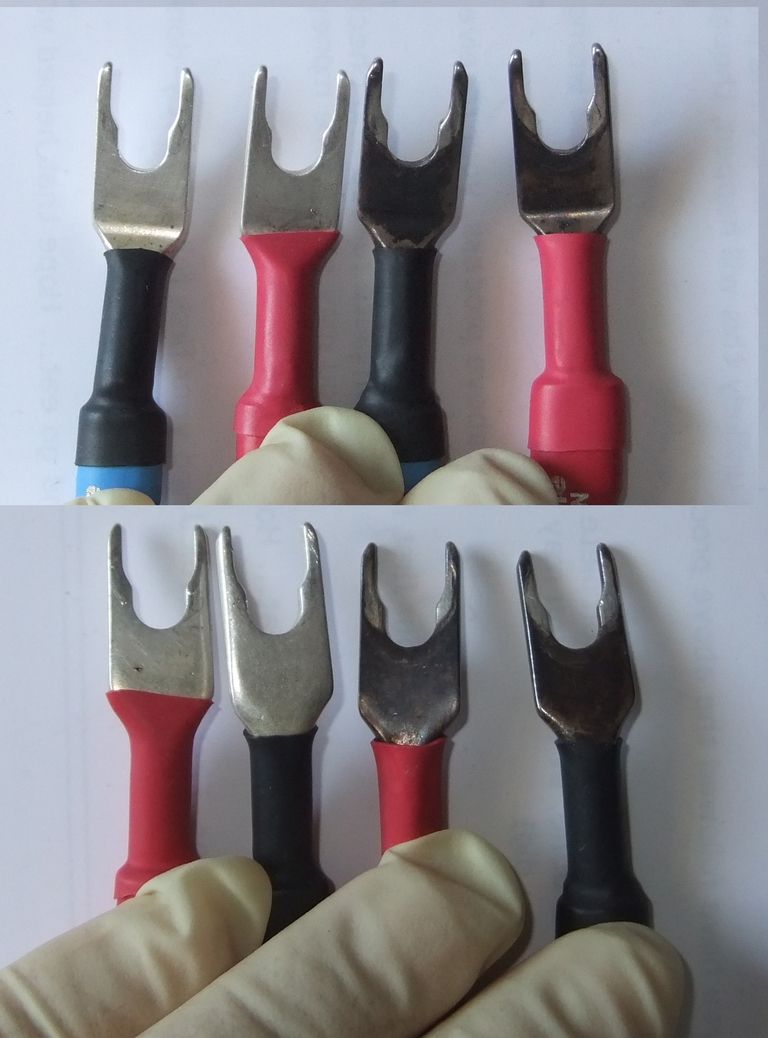Ouch! I don't see how these cables could have shorted together, however after looking at those photos? I would contact Nordost to see about some re-termination of the ends with something that doesn't do that. Wow, that's bad and has got to be degrading the signal something awful. Here's there contact information if you need it;
Nordost Corporation
93 Bartzak Drive
Holliston, MA 01746
Tel: +1 508 893 0100 US Toll Free: +1 800 836 2750 Fax: +1 508 893 0115
Email: info@nordost.com Or you can contact then directly here>>> http://www.nordost.com/contact
Yours is an extreme case of oxidation that some cleaners will remove and treat but not for long. I would recommend replacement and not from any local shop, especially the shop that installed these. As far as the question about the tubed pre earlier this morning, please disregard. My thought process would have blown the input transistor and not the output transistor of the amplifier.
Tom
Nordost Corporation
93 Bartzak Drive
Holliston, MA 01746
Tel: +1 508 893 0100 US Toll Free: +1 800 836 2750 Fax: +1 508 893 0115
Email: info@nordost.com Or you can contact then directly here>>> http://www.nordost.com/contact
Yours is an extreme case of oxidation that some cleaners will remove and treat but not for long. I would recommend replacement and not from any local shop, especially the shop that installed these. As far as the question about the tubed pre earlier this morning, please disregard. My thought process would have blown the input transistor and not the output transistor of the amplifier.
Tom









